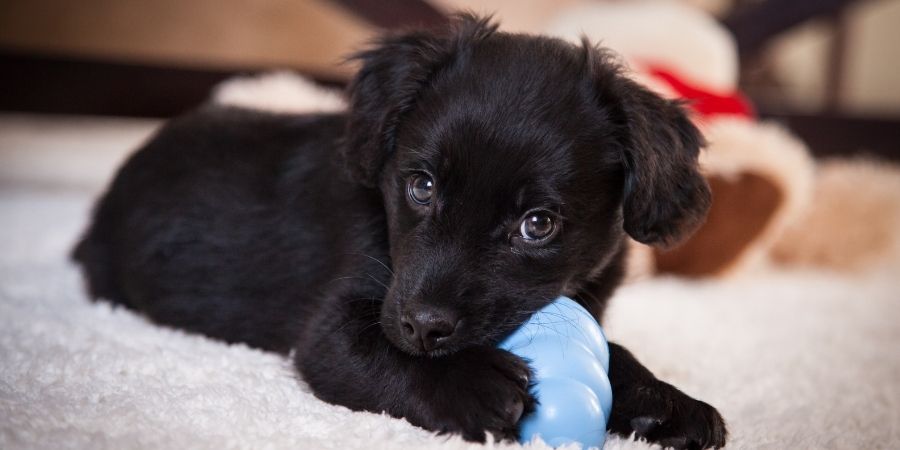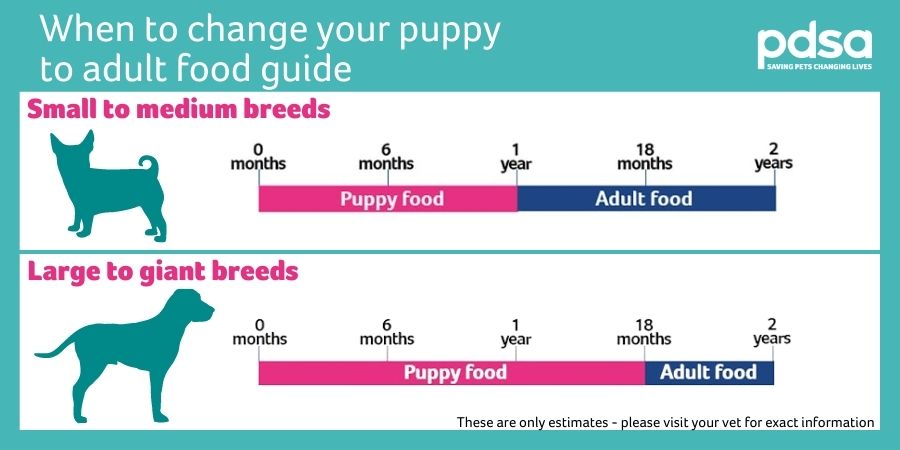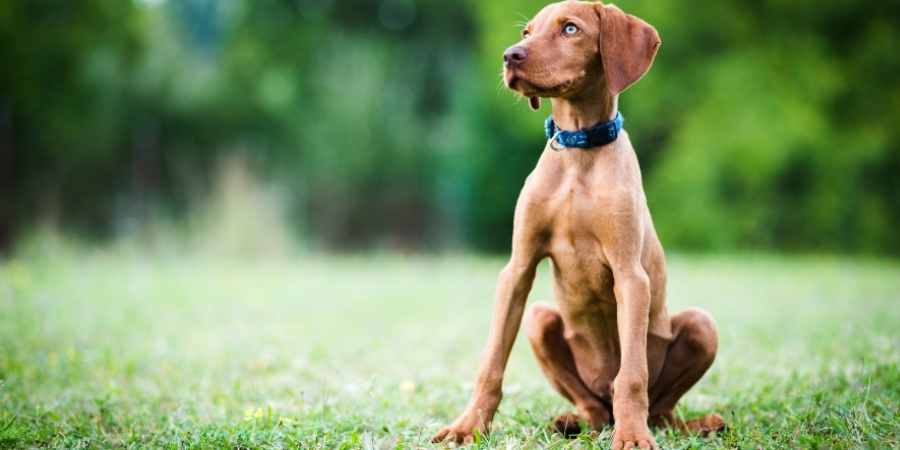Why is my puppy biting and chewing and how can I stop it?
Nibbling and chewing is a natural part of being a puppy. Just like kids, puppies go through teething where they have a strong urge to bite and chew. They also explore the world through their mouth, so it’s only natural that they nibble anything and everything they can!
Rather than trying to stop them from chewing, make sure you give them lots of dog-safe toys that they can chew. Don’t allow them to nip or chew on your fingers or clothing, as your pup might learn that nibbling you is acceptable, which can be a big problem when they have strong adult jaws! You can also work with your pup to train them not to chew things that aren’t meant for them.

How should I introduce my new puppy to my current dog?
Before your current dog meets your pup, you’ll need to make sure your current dog is up to date with their vaccines, and if they become unwell, get them checked by your vet ahead of their first meet and greet. Once they’re home, it’s best to do introductions slowly, making sure your doggy has a quiet space to get away from your boisterous new pup!
Generally, it’s a good idea to introduce dogs to each other on ‘neutral territory’, but this might be difficult because your puppy won’t be fully protected by their vaccinations just yet. You could think about visiting a friend’s garden (as long as there haven’t been any unvaccinated dogs there), but often you’ll need to do introductions at home. An open area without too much furniture is usually best so both dogs have plenty of space to move around each other and sniff.
Always take away favourite toys or anything else that your current dog feels protective over such as food or beds, to prevent them from getting upset if your puppy gets hold of them. It may be best to keep both dogs on a loose lead when they first meet, looking for signs in their body language to spot whether the meeting is going well. Keep introductions short to begin with, and don’t forget to reward both dogs with some treats if they’re relaxed and playful!
Your new puppy may be a lot more playful than your current dog, so it’s important to spend time yourself playing with, and entertaining your pup, to give your other dog some space. Remember to spend quality time with your current dog as well, by taking them for a walk by themselves – and as much as possible, be sure to stick to your first dog’s current routine, so they don’t feel a dramatic change with the new bundle of joy!
Remember to feed your dogs away from each other, especially at the beginning, so neither can guard their food and you can make sure they’re getting the right diet.
When can I start feeding my puppy adult dog food?
The age when your puppy can change onto adult food will depend on their breed, size and a number of other factors, such as the timing of their neutering.
Although it’s not possible to give an exact time for every dog, as a general rule small dogs will need to continue with puppy food until they are around one year old, while large or giant breeds will need puppy food until around 18 months. Often the packaging for your dog’s food will give you a guideline, but if you’re not sure about when to switch your puppy to adult food, it’s best to talk to your vet for advice.

How do I crate train my puppy?
Crates are a good way of making sure your puppy is secure and out mischief when you’re not able to be with them. They can also be a safe place for your puppy to go, especially if they want a bit of time to themselves.
However, it is something your puppy will need to get slowly used to. Each dog will take a different amount of time before they are happy to be in their crate, but there are steps you can take with our useful crate training how-to guide, to help your puppy build a positive experience.
My puppy eats poo – is that normal?
There are lots of reasons your puppy might eat poo – one of which being simply because they like the taste, yuck! However, it’s good to remember that it’s a completely natural behaviour. The best thing to try positive reward-based techniques to train them not to eat the poop.

How often should I take my puppy to the vet?
Your puppy’s first trip to the vet will often happen before you bring them home. Many breeders will take their puppies to the vet for a health check, their microchipping and their first vaccination. It’s important to ask your breeder for details of any vet visits, and don’t forget to bring your puppy’s paperwork, including their vaccination and microchipping records, home when you collect them.
It’s a good idea to register with a vet before your puppy comes home, as they will be able to advise you about the timings for your puppy’s vaccines, and provide support and advice if they become unwell.
Your puppy will need to have a full course of vaccines when they’re little. If they’ve had their first vaccine with the breeder, their remaining jabs might need to be done over one or two more visits. Your vet will be able to advise you of an exact schedule.
Once their vaccine course is completed, often the next time your puppy will need to go to the vet, will be when they’re ready to be neutered. This is usually between 6-12 months, although this will depend on a number of factors such as their sex, breed and size.
Don’t forget to book in their annual boosters and health check too, which they’ll need every year to stay healthy and happy!
If your puppy gets poorly or you need some extra advice, your vet will be happy to help by giving advice over the phone or with an appointment if necessary. There’s no exact amount of visits you and your puppy might make to the vet in their first year – it’ll all depend on your pup and their general health! Remember that where you get your puppy from will have a big effect on their health and wellbeing too.
For answers to more of your puppy questions, read our Vet Q&A.
